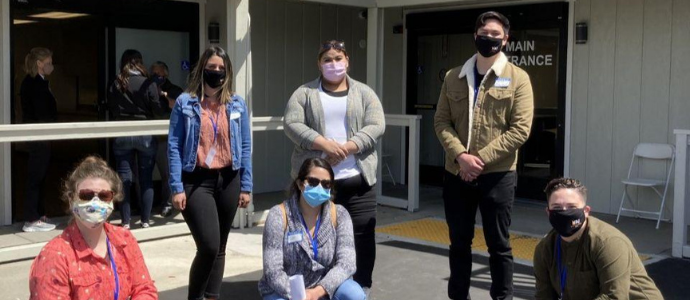Although the medical establishment in the United States has traditionally neglected mental health in favor of physical health, the pandemic has brought both mental health and mental illness to the forefront. Many people realize they cannot and should not try to “power through” moments of crisis. A recent New York Times survey of 13,000 mental health professionals revealed that nine out of 10 observed an increase in people seeking care.
People with intellectual and developmental disabilities (I/DD) experience a disproportionate share of vulnerability to mental illness. Studies show that up to 40% of people with I/DD have mental health needs. For many, the challenges have been compounded by the stresses of the pandemic. According to a National Institutes of Health study from May 2020, the mental health of people with I/DD has likely been affected more than the neurotypical population during COVID, “because of the demands of quarantine potentially triggering problem behaviors.” The study goes on to cite ADHD (a relatively common co-condition with autism) worsening without pre-pandemic routines. Another example is obsessive-compulsive disorder, which can also be worsened due to stress. The study states, “These triggers can mount to high levels of overwhelming stress leading to mental illness. Many behavioral and psychological interventions cannot be implemented due to significantly reduced face to face work by health and social care staff further complicating access to appropriate interventions.”
Enter START, a program model that is tailored to people with I/DD and co-occurring mental health challenges. According to Stefon Smith, Program Director at YAI, START is one of the only evidence-based models in this field, which helps account for its success and its growth.
“Governing bodies are seeing an important need for these services,” Smith said. “That’s why START is expanding as much as it is in different states."
START relies on fostering a community of support for each person, facing the challenges of isolation head-on. For more than five years, YAI has overseen START (Systemic, Therapeutic, Assessment, Resources, and Treatment) programs in New York State, where it is known as Crisis Services for Individuals with Intellectual and/or Developmental Disabilities (CSIDD). Beginning in 2016 with a pilot in the Bronx, Manhattan, and Queens, YAI is now supporting hundreds of people in crisis each year. In 2019, YAI opened its first two START programs in California. Additionally, the organization has just been approved to open another in Fresno, California, another START/CSIDD program that spans 20 upstate counties throughout New York, along with a program in Maryland. Together, the new programs will provide crisis intervention support to 425 additional people with I/DD and co-occurring mental health needs.
START typically supports people over a 12-to-18-month timeframe. Once someone is referred to the program, staff reach out to family, case workers, and others to understand how to best support that person. Often, the person or family is clearly in crisis. Once intake is complete, coordinators provide weekly support, addressing the reason for the person’s referral. According to START California Director Sharon Cyrus-Savary, the specific reason for referral varies, but it’s often due to a need for diagnostic clarification.
“We go in and try to figure out how that family can support their child or loved one in the least restrictive environment possible,” said Cyrus-Savary. “Many times, the reason for referral is diagnostic clarification, so we work with our medical director to tease out different diagnoses so that people can have the most appropriate medications and therapeutic supports and resources in the community.”
Access to appropriate community resources has become slightly more complicated during the pandemic, but START has found creative workarounds to ensure people avoid isolation.
“With COVID a lot of people are stuck at home so we try to find ways to increase activities they can do via telehealth, or Zoom or groups that they can join virtually, as well as some community supports,” said Cyrus-Savary.
START currently operates in 14 states and has network partners in four others, providing around-the-clock crisis intervention support for children and adults. Filling in local service gaps and strengthening community supports and systems, START programs carefully track different data points to measure success. One metric is hospital admissions. Over the past year, YAI’s programs on both coasts have served more than 650 people, decreasing hospital admissions by 22 percent.
Despite these challenges, START programs have continued to reduce emergency department (ED) visits and increase program participants’ natural systems of support. Over the past year, YAI’s New York START/CSIDD programs have decreased ED visits by 18 percent. In California programs, visits have decreased by 20 percent. This indicates that despite the added pressures of the pandemic and the added difficulties of effectively treating people while some services have become remote, the START model is working.
For Smith, the numbers reflect a perfect union between START’s philosophy and YAI’s philosophy.
“The START model aligns very closely with YAI, especially around the focus on a person-centered approach and positive psychology,” he said. “That’s why the START National Network and YAI form a really effective synergy.”

